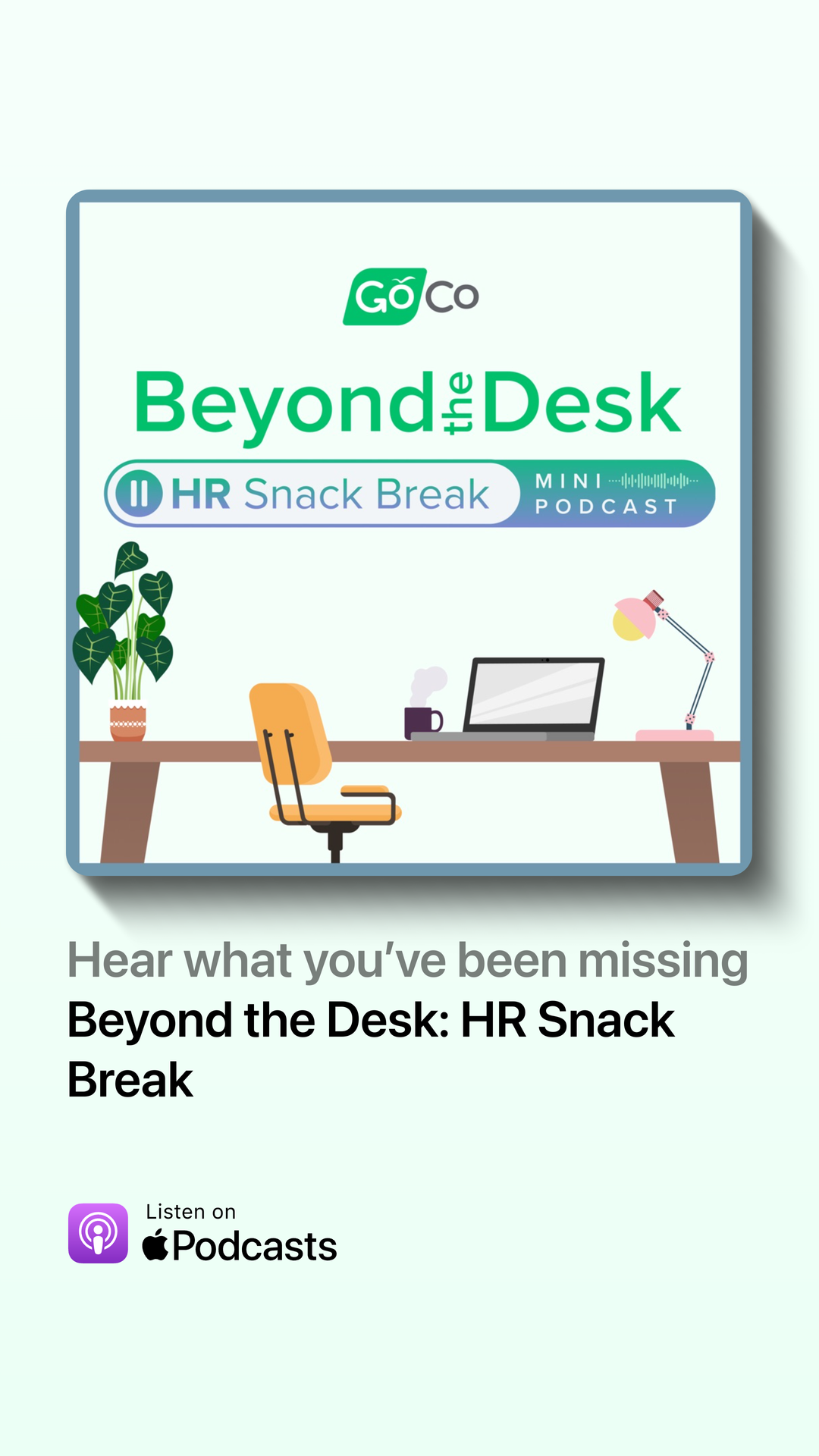HR's 9-Step Guide to Conflict Resolution in the Workplace [+Template]
Effective conflict resolution in your workplace is essential for maintaining a harmonious work environment.
by Anna Coucke - September 6th, 2023
Let's face it – no matter how well your team works together, there is bound to be a disagreement between colleagues or teams at some point. Whether that disagreement centers on work processes or something more personal, teams must be able to overcome conflict in order to continue working together harmoniously.
Effective conflict resolution in your workplace is essential for maintaining a harmonious work environment, promoting employee well-being, fostering collaboration, and achieving organizational success. No matter what causes the disagreement, identifying the issue and working together to learn from and move through it is crucial in fostering an emotionally intelligent and understanding workplace.
HR's Role in Conflict Resolution
By actively engaging in conflict resolution, HR helps maintain a harmonious workplace and support the organization's overall success. In many cases, HR can mediate the conflict resolution process by focusing on fostering dialogue, maintaining impartiality, and assisting parties in reaching a mutually satisfactory outcome. Mediation may be particularly beneficial if one of the parties is more outspoken (or even hostile) than the other.
It is recommended to document and have a record of any conflict resolution being mediated in your company by having all involved parties fill out and sign a conflict resolution agreement document. You can download a customizable template for a conflict resolution agreement here:
Download Conflict Resolution Template
Help mediate conflicts with this free customizable form!
Identifying the Source of Conflict
Workplace conflicts can arise from various (or multiple) sources. Some of the most common sources of conflict in work environments include:
Communication breakdowns – Misunderstandings, poor communication, or lack of clarity when conveying information can lead to conflict. Differences in communication styles, language barriers, or ineffective communication channels can all contribute to this source of conflict.
Personality clashes – Differences in personalities, work styles, or values among colleagues can often result in conflicts. People may have conflicting approaches to problem-solving, decision-making, or working in teams, leading to friction and tension.
Role ambiguity – Conflicts can arise when there is ambiguity or overlap in job responsibilities. Unclear expectations about roles and responsibilities can create confusion, resentment, and conflicts between employees or departments.
Competition for resources – Limited resources, such as budget, equipment, or office space, can create conflicts as individuals or teams vie for their share. If the distribution of resources is perceived as unfair or unequal, it can lead to tension and conflicts among employees.
Power struggles – Hierarchical dynamics and struggles for power can generate conflicts in the workplace. When individuals or groups seek to gain control, influence decision-making, or assert authority, it can lead to disputes between colleagues or management and employees.
Differences in work values or goals – Conflicts can arise when employees have differing work values or goals. Misalignment in priorities, work ethic, or the desired outcomes can create tension and disagreements within teams or across different departments.
Organizational changes – Major organizational changes, such as restructuring, mergers, or downsizing, can create uncertainty and conflicts. Changes in job roles, reporting lines, or work processes can disrupt established routines and cause conflict.
Discrimination and harassment – Instances of discrimination or harassment based on race, gender, age, or ethnicity can lead to serious conflicts in the workplace, and, depending on the nature and severity, can also result in legal action. Conflict of this nature requires prompt attention and resolution to ensure a safe and inclusive work environment is upheld for everyone.
Conflict Resolution in 9 Steps
Once the existence and source of conflict are identified, it’s time to initiate a strategy for solving it. The exact steps towards resolution can vary depending on the severity of the conflict and the parties involved, but often use the following process:
1. Identify and acknowledge the conflict: Recognize that a conflict exists and understand its nature, causes, and impact on individuals or the organization. This involves actively listening to all parties involved and acknowledging their perspectives.
No matter the disagreement, it’s crucial to figure out the root cause of a conflict and not just focus on superficial issues. For example, suppose one employee is trying to outdo their colleagues instead of focusing on their own assignments by reworking documents that aren’t theirs or is constantly belittling the accomplishments of others. In that case, a larger power struggle is likely happening under the surface that must be addressed.
2. Gather information: Collect relevant information about the conflict by speaking with the parties involved, reviewing documentation or records, and seeking additional insights from outside parties if necessary. Understanding each party's underlying thoughts and perspectives is crucial for effective resolution.
3. Encourage open communication: Create a safe and supportive environment where individuals can openly express their concerns, needs, and viewpoints. During this time, be sure to encourage active listening and respectful communication (i.e. using “I” rather than “you” language) to promote understanding and empathy.
4. Define goals and desired outcomes: Collaboratively establish the desired outcomes and goals that each party desires. This step helps parties identify common ground and align their efforts toward a mutually satisfactory resolution.
5. Generate potential solutions: Encourage brainstorming and creative problem-solving to generate various possible solutions and find areas of agreement in interests and goals. This encourages creativity and allows for a variety of perspectives to be considered. Be sure to initially consider all viewpoints and ideas without judgment, aiming for quantity – rather than quality – of ideas.
6. Evaluate and select a solution: Evaluate and negotiate the potential solutions based on their feasibility, effectiveness, and alignment with the identified goals. Negotiation aims to find a solution that addresses the interests and concerns of all parties involved – not just one. Select the solution(s) that best addresses the underlying interests and concerns of all parties.
When finding a mutually agreeable solution is particularly challenging, recognize that compromise may be the best solution. Compromise involves all parties (again, not just one) making concessions to reach a middle ground that satisfies some of their respective interests.
7. Implement the chosen solution: Develop a plan of action to implement the chosen solution. Assign responsibilities, set deadlines, and communicate the agreed-upon actions to all relevant parties. Ensure clarity and transparency throughout the implementation process.
8. Review and evaluate the outcome: Monitor and assess the implemented solution's effectiveness. Seek feedback from the involved parties at pre-determined intervals to evaluate whether the conflict has been resolved satisfactorily or if further adjustments are needed.
9. Follow-up and maintain open communication: After conflict resolution is achieved, it is essential to follow up with the involved parties to ensure that the resolution is working and any residual issues are addressed. Be sure to maintain open communication channels to prevent further conflicts and promote ongoing collaboration between the involved parties.
It's important to recognize that conflict resolution is a dynamic process, and the steps involved may require flexibility and adaptation based on the specific circumstances and the parties involved.
Through every step toward a resolution, effective communication techniques are the most critical aspect of reaching a mutual understanding between parties. Encouraging individuals to express their viewpoints, actively listen to each other, and promoting open dialogue can create an atmosphere of understanding, growth, and collaboration.
Final Thoughts
Conflict resolution is a necessary part of fostering a positive work environment. By acknowledging conflicts and encouraging open communication and problem-solving, HR can help guide the disagreeing parties toward resolution.
Take a tour of GoCo to learn about how an HRIS can help your organization reach its full potential through modern performance management, document retention, and more!

Subscribe to Beyond The Desk to get insights, important dates, and a healthy dose of HR fun straight to your inbox.
Subscribe hereRecommended Posts
7 Tips for Supporting Neurodiversity in the Workplace
Blog Articles
Search...
Product
GoCo
Resources
Articles
eBooks
Webinars
Customer Stories






